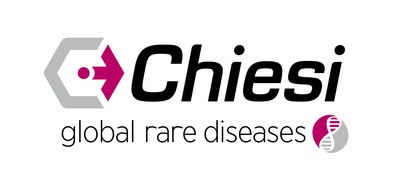Chiesi Global Rare Diseases and Protalix BioTherapeutics Announce Validation of Variation Submission by European Medicines Agency for pegunigalsidase alfa
- Application to label a less frequent dosing regimen at a dose of 2 mg/kg body weight administered every four weeks in adult patients with Fabry disease in
European Union
PARMA, Italy and CARMIEL Israel,
The variation application is supported by a revised Population-PK model and new exposure-response analyses and by the clinical data on pegunigalsidase alfa 2 mg/kg E4W from the completed Phase 3 study PB-102-F50 (BRIGHT) and its ongoing extension study CLI-06657AA1-03 (formerly known as PB-102-F51), that have investigated the 2 mg/kg every four weeks dosing regimen in adult patients with Fabry disease who were previously treated with agalsidase-alfa or -beta administered every two weeks. Results of the completed study PB-102-F50 were recently published in the
"The validation of this variation application is an important milestone in our efforts to reduce the burden of treatment for some adult patients living with Fabry disease who continue to experience unmet medical needs," said
"Based on study results, we believe in the potential of pegunigalsidase alfa 2 mg/kg administered every four weeks to be a beneficial, alternative dosing option for some adults living with Fabry disease," said
Indication and Important Safety Information for Elfabrio® (pegunigalsidase alfa-iwxj)
Indication
Elfabrio® (pegunigalsidase alfa-iwxj) is indicated for the treatment of adults with confirmed Fabry disease.
Important Safety Information
|
WARNING: HYPERSENSITIVITY REACTIONS INCLUDING ANAPHYLAXIS |
|
Patients treated with Elfabrio have experienced hypersensitivity reactions, including anaphylaxis. Appropriate medical support measures, including cardiopulmonary resuscitation equipment, should be readily available during Elfabrio administration. If a severe hypersensitivity reaction (e.g., anaphylaxis) occurs, discontinue Elfabrio immediately and initiate appropriate medical treatment. In patients with severe hypersensitivity reaction, a desensitization procedure to Elfabrio may be considered. |
Prior to Elfabrio administration, consider pretreating with antihistamines, antipyretics, and/or corticosteroids. Inform patients and caregivers of the signs and symptoms of hypersensitivity reactions and infusion-associated reactions (IARs) and instruct them to seek medical care immediately if such symptoms occur.
- If a severe hypersensitivity reaction (including anaphylaxis) or severe IAR occurs, immediately discontinue Elfabrio administration and initiate appropriate medical treatment.
- If a mild to moderate hypersensitivity reaction or IAR occurs, consider slowing the infusion rate or temporarily withholding the dose.
In clinical trials, 20 (14%) Elfabrio-treated patients experienced hypersensitivity reactions. Four Elfabrio-treated patients (3%) experienced anaphylaxis reactions that occurred within 5 to 40 minutes of the start of the initial infusion. The signs and symptoms of hypersensitivity reactions and anaphylaxis included headache, nausea, vomiting, throat tightness, facial and oral edema, truncal rash, tachycardia, hypotension, rigors, urticaria, intense pruritus, moderate upper airway obstructions, macroglossia, and mild lip edema.
In clinical trials, 41 (29%) Elfabrio-treated patients experienced one or more infusion-associated reactions, including hypersensitivity, nausea, chills, pruritus, rash, chest pain, dizziness, vomiting, asthenia, pain, sneezing, dyspnea, nasal congestion, throat irritation, abdominal pain, erythema, diarrhea, burning sensation, neuralgia, headache, paresthesia, tremor, agitation, increased body temperature, flushing, bradycardia, myalgia, hypertension, and hypotension.
A case of membranoproliferative glomerulonephritis with immune depositions in the kidney was reported during clinical trials. Monitor serum creatinine and urinary protein-to-creatinine ratio. If glomerulonephritis is suspected, discontinue treatment until a diagnostic evaluation can be conducted.
When switching to Elfabrio from a prior enzyme replacement therapy, the risk of hypersensitivity reactions and infusion-associated reactions may be increased in certain patients with pre-existing anti-drug antibodies (ADAs). Consider monitoring IgG and IgE ADAs and clinical or pharmacodynamic response (eg, plasma lyso-Gb3 levels).
The most common adverse reactions (≥15%) were infusion-associated reactions, nasopharyngitis, headache, diarrhea, fatigue, nausea, back pain, pain in extremity, and sinusitis.
Please see Full Prescribing Information for Elfabrio.
About Chiesi Global Rare Diseases
Chiesi Global Rare Diseases is a business unit of the
About
Chiesi is a research-oriented international biopharmaceutical group that develops and markets innovative therapeutic solutions in respiratory health, rare diseases, and specialty care. The company's mission is to improve people's quality of life and act responsibly towards both the community and the environment.
By changing its legal status to a
With over 85 years of experience, Chiesi is headquartered in
About
Protalix BioTherapeutics' Forward-Looking Statements
To the extent that statements in this press release are not strictly historical, all such statements are forward-looking, and are made pursuant to the safe-harbor provisions of the Private Securities Litigation Reform Act of 1995. The terms "expect," "anticipate," "believe," "estimate," "project," "may," "plan," "will," "would," "should" and "intend," and other words or phrases of similar import are intended to identify forward-looking statements. These forward-looking statements are subject to known and unknown risks and uncertainties that may cause actual future experience and results to differ materially from the statements made. These statements are based on
Chiesi Group Media Contacts
Chiara Travagin
Head of Communications, Rare Diseases
Tel: +39 348 8818985
Email: c.travagin@chiesi.com
Berry & Company Public Relations
Tel: +1 212 253 8881
Email: adaley@berrypr.com
Protalix Investor Contact
Tel: +1-617-308-4306
Email: mmoyer@lifesciadvisors.com
PP-RA-00423 V1.0
![]() View original content to download multimedia:https://www.prnewswire.com/news-releases/chiesi-global-rare-diseases-and-protalix-biotherapeutics-announce-validation-of-variation-submission-by-european-medicines-agency-for-pegunigalsidase-alfa-302325589.html
View original content to download multimedia:https://www.prnewswire.com/news-releases/chiesi-global-rare-diseases-and-protalix-biotherapeutics-announce-validation-of-variation-submission-by-european-medicines-agency-for-pegunigalsidase-alfa-302325589.html
SOURCE

